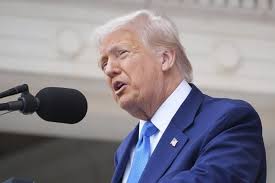Trump’s campaign against law firms dealt another setback as judge blocks executive order

Former President Donald Trump’s campaign to restrict law firms has hit another major roadblock. A federal judge recently blocked an executive order aimed at limiting what the Trump administration called abusive litigation tactics. This ruling shows growing judicial resistance to policies seen as overreaching. It also raises key questions about the balance between government power and legal rights.
Background: The Executive Order and Its Goals
The Trump administration introduced the executive order to protect businesses from what it labeled “frivolous” lawsuits. These lawsuits mainly involved consumer protection, environmental cases, and labor disputes. Officials said these legal actions placed heavy burdens on companies. They argued that these lawsuits hurt economic growth and business development.
The order targeted law firms representing plaintiffs in such cases. It proposed limiting contingency fees, restricting some class-action lawsuits, and adding reporting rules for law firms. The administration claimed these steps would reduce excessive litigation and help businesses thrive.
Legal Challenges and Court’s Reaction
Soon after the order came out, several legal groups and civil rights organizations filed lawsuits against it. They argued that the order unfairly attacked law firms and violated people’s right to access courts. They warned that limiting law firms’ actions could block many from seeking justice, especially those fighting against corporate misconduct.
The case reached federal court, where the judge expressed serious concerns about the order’s broad scope. In the ruling, the judge said the order likely exceeded executive authority and violated constitutional protections. The judge highlighted that the government cannot interfere with lawyers’ ability to represent clients or limit legal claims unfairly.
The judge wrote, “The executive order restricts law firms’ independent practice and could prevent legitimate claims. This harms the very people the justice system should protect.”
Impact on the Legal Community
The legal community welcomed the ruling as a major win. The American Bar Association (ABA) praised the decision, stating, “This ruling protects lawyers’ independence and upholds the right to advocate for justice without political interference.”
Law firms focusing on consumer, environmental, and labor cases saw the injunction as a vital defense. They stressed that holding corporations accountable through courts is essential for democracy and fairness.
Experts warned that the executive order could discourage lawyers from taking public interest cases. “If lawyers fear strict rules or fees limits, they may avoid representing clients who cannot pay upfront,” said a legal analyst. “This would reduce access to justice, especially for marginalized groups.”
Political and Economic Context
The Trump administration called the order a pro-business reform. They claimed lawsuits hurt the economy and cost jobs. Supporters believed limiting these suits would encourage investment and innovation.
However, critics argued the order aimed to protect corporations from accountability. They said it was part of a broader effort to weaken regulations and block legal challenges to corporate behavior.
The judge’s decision reflects the courts’ role in checking executive actions. It shows that government power has limits, especially when legal rights are at stake.
What Happens Next?
The court’s injunction stops the executive order for now. The Trump administration plans to appeal and defend the order in higher courts. Lawyers and advocacy groups are watching closely because the case affects legal practice and access to justice nationwide.
Future hearings will examine if the administration can legally justify the restrictions. Courts may either uphold or completely reject the order. Legal experts say this case could set important rules about executive power and legal protections.
Conclusion
The judge’s block of the executive order deals a big blow to Trump’s campaign against law firms. It highlights the tension between government control, business interests, and the rights of people seeking justice.
As the legal fight continues, the ruling reminds us of the courts’ vital role in protecting balance and fairness in the legal system.
For now, law firms can continue defending clients without the new restrictions. This victory supports the legal profession and all who rely on courts to ensure fairness and accountability.






